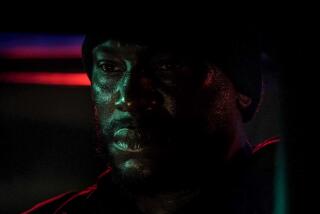In their long article, “It Was a...
- Share via
In their long article, “It Was a Very Good Year-- Not! “ (Jan. 12) Pat McGilligan and Mark Rowland begin their one paragraph about documentaries with: “As bad a year as it was for major studio movies, it was even worse for documentaries.”
They follow this grim introduction with a quote from David Crumpler of the Florida Times Union, who said, “I’m not even sure I’ve seen a documentary this year.” Presumably, the purpose of McGilligan and Rowland’s article is to sum up what a panel of critics from all over the country thought about last year’s movies. Should we trust someone who didn’t bother to see the year’s documentaries in judging whether or not it was a good year for documentaries?
Furthermore, Crumpler’s lack of enthusiasm is not at all representative of what most film critics who actually saw nonfiction films in 1991 had to say--about either “Paris Is Burning” or “Hearts of Darkness: A Filmmaker’s Apocalypse,” the two films the article mentions. Many critics who took part in the L.A. Times poll gave “Paris Is Burning” rave reviews. The New York film critics voted it best documentary of 1991.
“Hearts of Darkness” was also praised by a majority of critics in their reviews, as well as in their year-end summaries. So why do McGilligan and Rowland paint 1991 as a bad year for documentaries, “worse” even than the year’s mainstream film releases?
As the director of “Paris Is Burning,” I’m slightly annoyed that McGilligan and Rowland spell both my first and last names wrong. But I’m truly shocked that they didn’t even bother to get the subject matter of the film right.
“Paris Is Burning” is not “an intimate portrait of Harlem transsexuals.” It is about a gay male subculture that battles homophobia, racism and poverty with dignity and imagination. Only three of the film’s nine main characters are transsexuals, and while it sounds racy and sensationalistic to say the film focuses on transsexuals, it’s clear that the writers haven’t bothered to see the film, or to read a summary of the film. Nor have they grasped its meaning.
While it’s easy for McGilligan and Rowland to pay lip service to acknowledging the positive impact of “more women directors, more black directors,” it’s unfortunate that the importance of gay films and gay directors (“Tongues Untied,” “Poison,” “My Own Private Idaho,” “Paris Is Burning”) completely eludes them.
JENNIE LIVINGSTON
New York
More to Read
Only good movies
Get the Indie Focus newsletter, Mark Olsen's weekly guide to the world of cinema.
You may occasionally receive promotional content from the Los Angeles Times.










